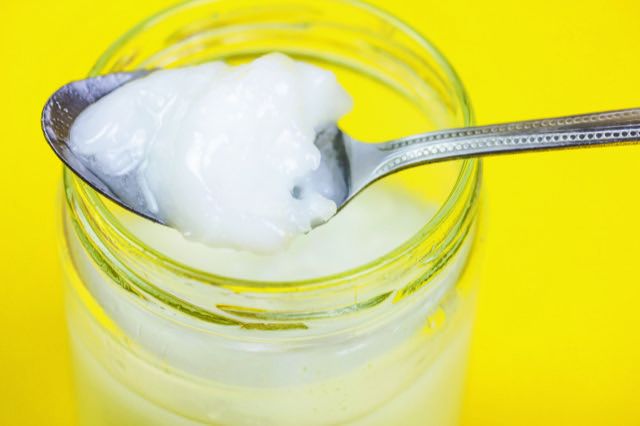Q: You say to avoid fats that are solid at room temperature. Does that include coconut oil?
A: Alice H. Lichtenstein, DSc, senior scientist and director of the Cardiovascular Nutrition Laboratory at the HNRCA and editor-in-chief of this newsletter, answers: “The past decade has seen a surge in the use of coconut oil in the U.S. diet due to a belief that coconut oil is good for health—particularly heart health. This idea is not supported by any strong scientific evidence.
“According to the latest review (published in July of 2023), some early, short-term studies showed a slight improvement in measures like cholesterol and body measurements when healthy adults consumed coconut oil, but more recent work and analyses of larger bodies of research have found coconut oil intake, compared to other plant oils, is associated with higher LDL (“bad”) cholesterol (a well-defined risk factor for cardiovascular disease) and no improvement in body weight, blood sugar control, or inflammatory parameters compared to non-tropical oils.
“Coconut oil is about 91 percent saturated fatty acids (saturated fat can raise cardiovascular disease risk). The main kind of saturated fatty acids in coconut oil have a shorter chain length than the saturated fatty acids in animal products. Research has not shown, however, that the specific medium-chain fatty acids in coconut oil are actually good for health.
“Another driver behind coconut oil’s popularity is that some Asian populations that consumed a lot of coconut oil had lower cholesterol levels and lower rates of cardiovascular disease than Western societies. It’s important to recognize that the overall dietary pattern of these populations was considerably healthier than traditional Western dietary intake (and it’s likely they had lower rates of overweight and obesity than most Americans, as well).
“Results from a 2020 review suggested the observed increase in LDL cholesterol from consuming coconut oil instead of non-tropical plant oils could translate to a six percent increased risk of “major vascular events” and a nearly five-and-a-half percent increase in the risk of death from coronary heart disease (CHD). On the other hand, previous research has found replacing five percent of calories from saturated fat with polyunsaturated fat has been associated with a 10 to 13 percent lower CHD risk.
“In other words, replace saturated fatty acids, including those from coconut oil, with unsaturated fatty acids from non-tropical plant oils (like olive, canola, corn, peanut, safflower, soybean, and sunflower oil).”
Kelly Kane MS, RD, is an assistant professor in the Friedman School of Nutrition Science and Policy and the director of nutrition and business operations at the Frances Stern Nutrition Center at Tufts Medical Center, where she is also the dietetic internship director.

























Thank you for clarifying this, as many recipes now ask for coconut oil.